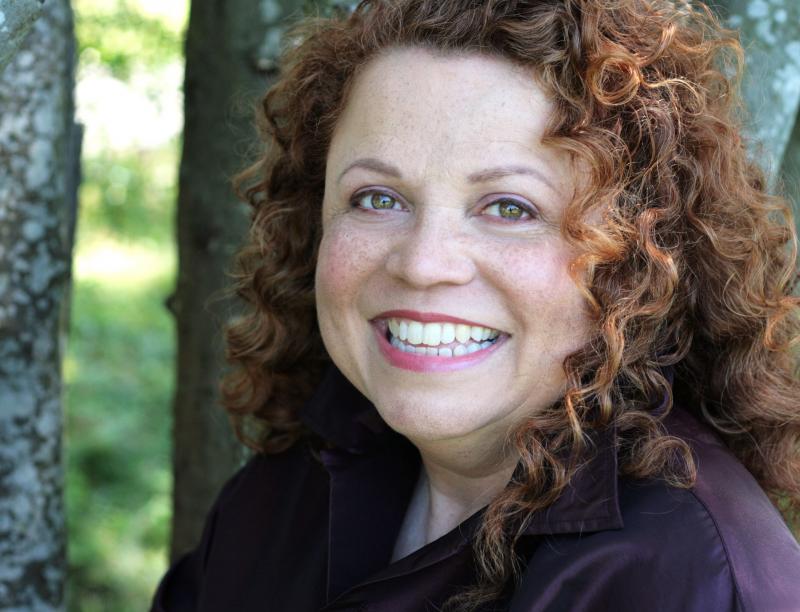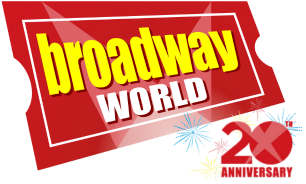Interview: Wilma Bonet of DON'T EAT THE MANGOS at Magic Theatre Loves Doing Theater That Makes the Audience Think

(Photo provided by the artist)
Bay Area acting luminary Wilma Bonet is currently starring in the Magic Theatre's world premiere of "Don't Eat the Mangos," Ricardo Pérez González' wickedly funny drama about a Puerto Rican family confronting its own legacy. Bonet has had a remarkably long and varied theater career, including six years with the San Francisco Mime Troupe and stints with most of the top-tier Bay Area theater companies. BroadwayWorld spoke with her just a week before performances of "Mangos" were set to begin. In conversation, Bonet is plainspoken and quick to laugh, with an enduring passion for political theater underlying her responses. The following conversation has been edited for clarity and length.
"Don't Eat the Mangos" is a world premiere so no one has seen it yet in its finished form. How would you describe the play and your own character in it?
It's a play about family that has secrets. I play Mami, the matriarch. And it's also, I would say, dressed in a dark comedic form. I don't want to give away too much...
How did the play first come to your attention?
I came to the project about two years ago. It was part of the Virgin Play Festival at the Magic. It was offered to me to read the character of Mami. And then six months later it was picked up by Sundance [Theatre Lab] to continue working on it and Ricardo, the playwright, asked for me to play Mami. We had almost a month of working on the play. First we read it, then he would do rewrites, and then we put it on its feet, so to speak, to see how it worked moving around, and then we shared it with other groups that were there for the summer. It was a fabulous experience.
I've heard about plays being "developed at Sundance" and I've always wondered what that entails. Did you see other work that was being developed while you were there?
Oh, yes, definitely! We had the opportunity, if we had time off, to go and sit in at the different workshops that were taking place. We just quietly sat and observed what they were doing, and then at the end, the last week, everyone shared their work. It was amazing because Sundance encouraged plays from all over the world, so there were people from South Africa, Lebanon and Palestine, and Charlayne Woodard was there as well, she was writing a play. It was great being in that environment and sharing and talking with people about the projects. You're kind of immersed in it and also every project is assigned a dramaturg and a whole stage management crew so that we could get whatever we needed to do the play. Plus, we were all fed [laughs] and there were mountains so it was just so conducive to writing. It's a beautiful place, and even when we'd sit down and eat conversations were always taking place about the work.
You've been acting for a long time now! What initially drew you to the world of theater?
I was very shy and actually there was a boy [I was interested in], and my friend said "You've got to join the drama club, Wilma. You're just too shy." I was born in New York so - I think this was in junior high - I started taking commedia dell'arte in theater club. That was fun, and I did want to go on and study theater, but I wasn't accepted into the performing arts high school. I was told I had a heavy Puerto Rican accent and I would never be able to act. But the woman who ran the theater club, she was very smart. She took me to see "A Midsummer Night's Dream" at what is now the Public, and I was totally blown away when I heard a heavy Puerto Rican accent onstage. It was this actor, Jaime Sanchez, who's Puerto Rican, playing Puck, and I said "What?! Omigod - a Latino! It is possible!" I eventually left New York and moved to the Bay Area. It was during the Viet Nam War era and I did a lot of guerilla-type theater or what we used to call "hit and run" theater in the streets. We would create sketches particular to the issue at hand and we would perform it and then leave. Eventually I joined the San Francisco Mime Troupe.
You were with the San Francisco Mime Troupe for six years. What was that like?
Oh, it was great cause I like political theater. But a lot of plays are political. They deal with heavy issues, including musicals. Like I was totally blown away by "South Pacific." There's the song "you've got to be taught to hate and fear" and it's about racism. He's been brought up a certain way and he knows that he won't be accepted with this woman, so I said you know "So there is political theater" and that's what I was drawn to - theater with a message. In the San Francisco Mime Troupe they do political theater, they've been around for 60 years now and they're considered an American treasure by other countries. I got the chance to tour Germany for two months at a time, and also Canada and all over the country back when touring was possible. Right now touring is not as viable as it used to be. In Germany we performed at the University of Bremen and they studied three theater companies that they felt were American theatrical forms - the San Francisco Mime Troupe, Teatro Campesino, and Bread & Puppet Theatre. So that was what the people were studying and they were even performing the plays in their own way. It was cool to meet people who actually saw theater as an important art form, which they do in Europe, but not so much here.
You have several film and TV credits from the 1990's, including small parts in films like "8MM" and "What Dreams May Come."
When I was in LA, I didn't have a union card. They felt really bad about hiring me because you know it would be for a day job, as a day worker, and all my money would go into getting my union card. But when I went back to the Bay Area, is when I started to [get more work] which is kind of silly. I think the most recent thing that I did was "Coco." I worked at Pixar for like six years developing the Abuela character. And then they gave me other parts in the film as well, so that was great.
You have a track record doing new works like "Mangos" and also classics like "Mother Courage and Her Children." Do you have a preference?
Well, "Mother Courage" is political - hello! - and I did Tony Kushner's version which is a monster, it's a 4-hour play! Eventually it was cut down, which was good. It was very interesting in terms of how that play tells the audience what they're about to see in the agitprop form, in our case somebody announcing at a concentration camp what was gonna happen. I really like plays that make the audience think and take home something from, some kind of meal to mull over. And I love hearing people say "Wow, I didn't expect this." and then you can see the wheels turning in their heads and that they've really gotten it, you know?
You've been at this game for a long time. Have opportunities for Latinx actors changed at all during the span of your career?
Yes, it has changed in the last 10 - 20 years, but we still got a ways to go. Right now I'm experiencing ageism, that's happening. People's perceptions of what they think a Latino is, or even a Puerto Rican, is very interesting. I wrote a play once, I did a one-woman show and the director I totally respected and hired him to direct me, he told me "Can you do that more Puerto Rican?" I just looked at him and said "I hope you're not telling me to do it more like Rosie Perez because that's not what's gonna happen. This is my story and I am Puerto Rican, OK?!" [laughs] Yeah, so people do things like that. They have a conception or a belief that this is how people are, and they wanna see that. And you know everything is not black and white. Everything is not the way you are and if you get out of the way you will see something new. Different cultures, and even within a culture there are little subcultures that we don't even think about until they're presented to you.
At this point in your career, what is most important to you?
My health! [laughs] You know, as you get older things don't work as smoothly as they used to. Like I did "Mother Courage" last year and the director wanted me to get on my knees and I said "I don't think I can do that." Because you know I basically don't have any cartilage behind the patella so I said "Let me find some way to give you what you want, which is basically the character falling apart." So I did it differently and it worked, but we had to figure out how to do that. In this play the other day I said "Oh, man I should get down on the floor and kiss her feet." And then I said "Yeah, but how do I get up?!" [laughs] But if there's a will, there's a way, so I'm still working on that...
"Don't Eat the Mangos" runs February 26th through March 22nd at the Magic Theatre, Fort Mason Bldg. D, 3rd Floor, San Francisco, CA 94123. Tickets and further information available at www.MagicTheatre.org or by calling (415) 441-8822.
Videos

